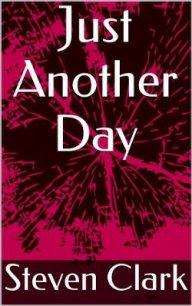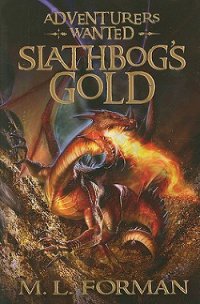Farewell, My Lovely - Chandler Raymond (книги онлайн полные версии бесплатно txt) 📗
He stared at me and his left hand began to edge towards the gun. He belonged to the Wandering Hand Society. The girls would have had a time with him.
“Don’t make me get tough,” I whined. “Don’t make me lose my beautiful manners and my flawless English, Just tell me how I got here.”
He had courage. He grabbed for the gun. It wasn’t where he grabbed. I sat back and put it in my lap.
He reddened and grabbed for the whiskey and poured himself another drink and downed it fast. He drew a deep breath and shuddered. He didn’t like the taste of liquor. Dopers never do.
“You will be arrested at once, if you leave here,” he said sharply. “You were properly committed by an officer of the law — “
“Officers of the law can’t do it.”
That jarred him, a little. His yellowish face began to work.
“Shake it up and pour it,” I said. “Who put me in here, why and how? I’m in a wild mood tonight. I want to go dance in the foam. I hear the banshees calling. I haven’t shot a man in a week. Speak out, Dr. Fell. Pluck the antique viol, let the soft music float.”
“You are suffering from narcotic poisoning,” he said coldly. “You very nearly died. I had to give you digitalis three times. You fought, you screamed, you had to be restrained.” His words were coming so fast they were leap-frogging themselves. “If you leave my hospital in this condition, you will get into serious trouble.”
“Did you say you were a doctor — a medical doctor?”
“Certainly. I am Dr. Sonderborg, as I told you.”
“You don’t scream and fight from narcotic poisoning. You just lie in a coma. Try again. And skim it. All I want is the cream. Who put me in your private funny house?”
“But — “
“But me no buts. I’ll make a sop of you. I’ll drown you in a butt of Maimsey wine. I wish I had a butt of Malmsey wine myself to drown in. Shakespeare. He knew his liquor too. Let’s have a little of our medicine.” I reached for his glass and poured us a couple more. “Get on with it, Karloff.”
“The police put you in here.”
“What police?”
“The Bay City police naturally.” His restless yellow fingers twisted his glass. “This is Bay City.”
“Oh. Did this police have a name?”
“A Sergeant Galbraith, I believe. Not a regular patrol car officer. He and another officer found you wandering outside the house in a dazed condition on Friday night. They brought you in because this place was close. I thought you were an addict who had taken an overdose. But perhaps I was wrong.”
“It’s a good story. I couldn’t prove it wrong. But why keep me here?”
He spread his restless hands. “I have told you again and again that you were a very sick man and still are. What would you expect me to do?”
“I must owe you some money then.”
He shrugged. “Naturally. Two hundred dollars.”
I pushed my chair back a little. “Dirt cheap. Try and get it.”
“If you leave here,” he said sharply, “you will be arrested at once.”
I leaned back over the desk and breathed in his face. “Not just for going out of here, Karloff. Open that wall safe.”
He stood up in a smooth lunge, “This has gone quite far enough.”
“You won’t open it?”
“I most certainly will not open it.”
“This is a gun I’m holding.”
He smiled, narrowly and bitterly.
“It’s an awful big safe,” I said. “New too. This is a fine gun. You won’t open it?”
Nothing changed in his face.
“Damn it,” I said. “When you have a gun in your hand, people are supposed to do anything you tell them to. It doesn’t work, does it?”
He smiled. His smile held a sadistic pleasure. I was slipping back. I was going to collapse.
I staggered at the desk and he waited, his lips parted softly.
I stood leaning there for a long moment, staring into his eyes. Then I grinned. The smile fell off his face like a soiled rag. Sweat stood out on his forehead.
“So long,” I said. “I leave you to dirtier hands than mine.”
I backed to the door and opened it and went out.
The front doors were unlocked. There was a roofed porch. The garden hummed with flowers. There was a white picket fence and a gate. The house was on a corner. It was a cool, moist night, no moon.
The sign on the corner said Descanso Street. Houses were lighted down the block. I listened for sirens. None came. The other sign said Twenty-third Street. I plowed over to Twenty-fifth Street and started towards the eight-hundred block. No. 819 was Anne Riordan’s number. Sanctuary.
I had walked a long time before I realized that I was still holding the gun in my hand. And I had heard no sirens.
I kept on walking. The air did me good, but the whiskey was dying, and it writhed as it died. The block had fir trees along it, and brick houses, and looked like Capitol Hill in Seattle more than Southern California.
There was a light still in No. 819. It had a white porte-cochere, very tiny, pressed against a tall cypress hedge. There were rose bushes in front of the house. I went up the walk. I listened before I pushed the bell. Still no sirens wailing. The bell chimed and after a little while a voice croaked through one of those electrical contraptions that let you talk with your front door locked.
“What is it, please?”
“Marlowe.”
Maybe her breath caught, maybe the electrical thing just made that sound being shut off.
The door opened wide and Miss Anne Riordan stood there in a pale green slack suit looking at me. Her eyes went wide and scared. Her face under the glare of the porchlight was suddenly pale.
“My God,” she wailed. “You look like Hamlet’s father!”
28
The living room had a tan figured rug, white and rose chairs, a black marble fireplace with very tall brass andirons, high bookcases built back into the walls, and rough cream drapes against the lowered venetian blinds.
There was nothing womanish in the room except a full length mirror with a clear sweep of floor in front of it.
I was half-sitting and half-lying in a deep chair with my legs on a footstool. I had had two cups of black coffee, then I had had a drink, then I had had two soft-boiled eggs and a slice of toast broken into them, then some more black coffee with brandy laced in it. I had had all this in the breakfast room, but I couldn’t remember what it looked like any more. It was too long ago.
I was in good shape again. I was almost sober and my stomach was bunting towards third base instead of trying for the centerfield flagpole.
Anne Riordan sat opposite me, leaning forward, her neat chin cupped in her neat hand, her eyes dark and shadowy under the fluffed out reddish-brown hair. There was a pencil stuck through her hair. She looked worried. I had told her some of it, but not all. Especially about Moose Malloy I had not told her.
“I thought you were drunk,” she said. “I thought you had to be drunk before you came to see me. I thought you had been out with that blonde. I thought — I don’t know what I thought.”
“I bet you didn’t get all this writing,” I said, looking around. “Not even if you got paid for what you thought you thought.”
“And my dad didn’t get it grafting on the cops either,” she said. “Like that fat slob they have for chief of police nowadays.”
“It’s none of my business,” I said.
She said: “We had some lots at Del Rey. Just sand lots they suckered him for. And they turned out to be oil lots.”
I nodded and drank out of the nice crystal glass I was holding. What was in it had a nice warm taste.
“A fellow could settle down here,” I said. “Move right in. Everything set for him.”
“If he was that kind of fellow. And anybody wanted him to,” she said.
“No butler,” I said. “That makes it tough.”
She flushed. “But you — you’d rather get your head beaten to a pulp and your arm riddled with dope needles and your chin used for a backboard in a basketball game. God knows there’s enough of it.”




